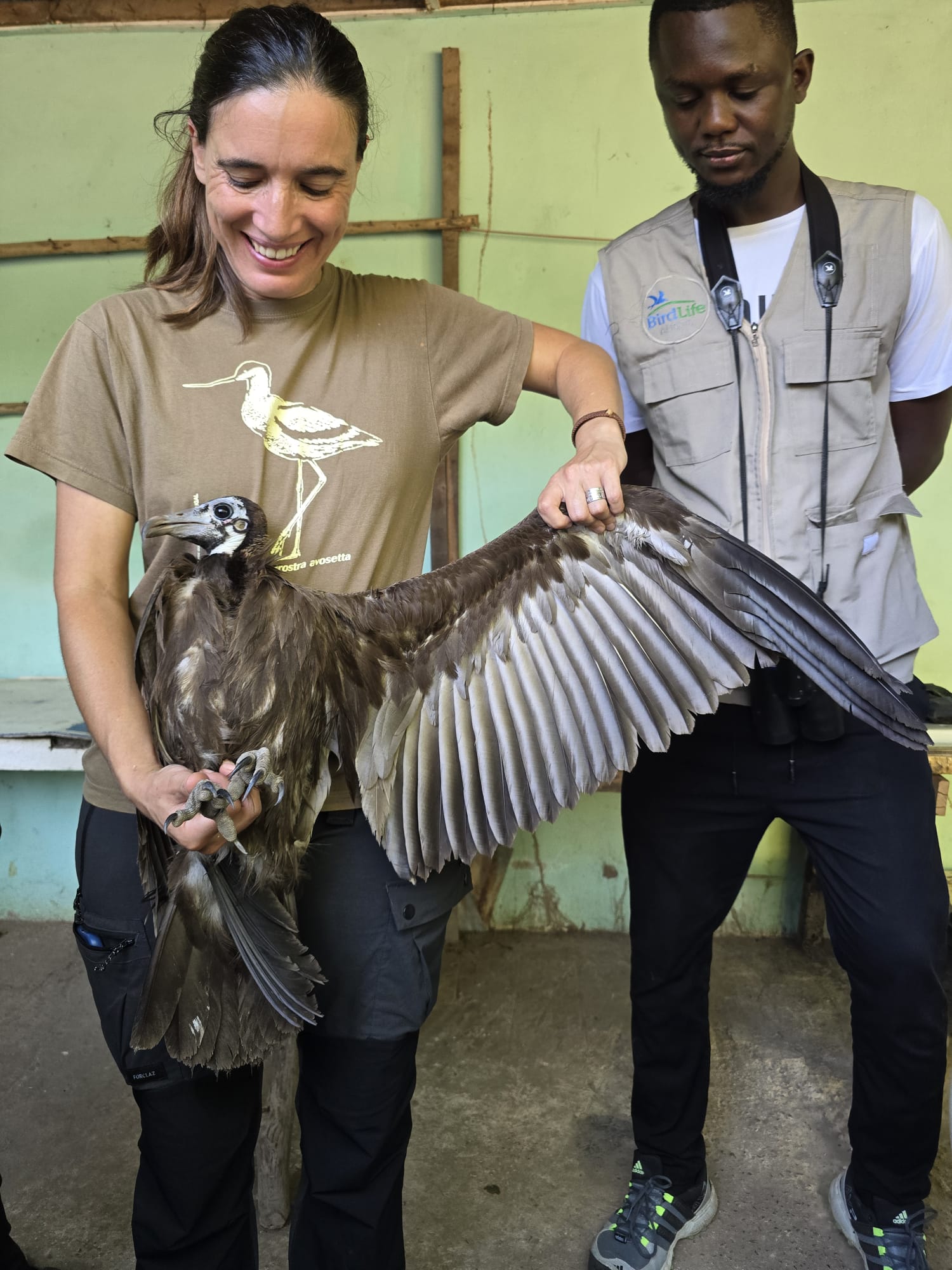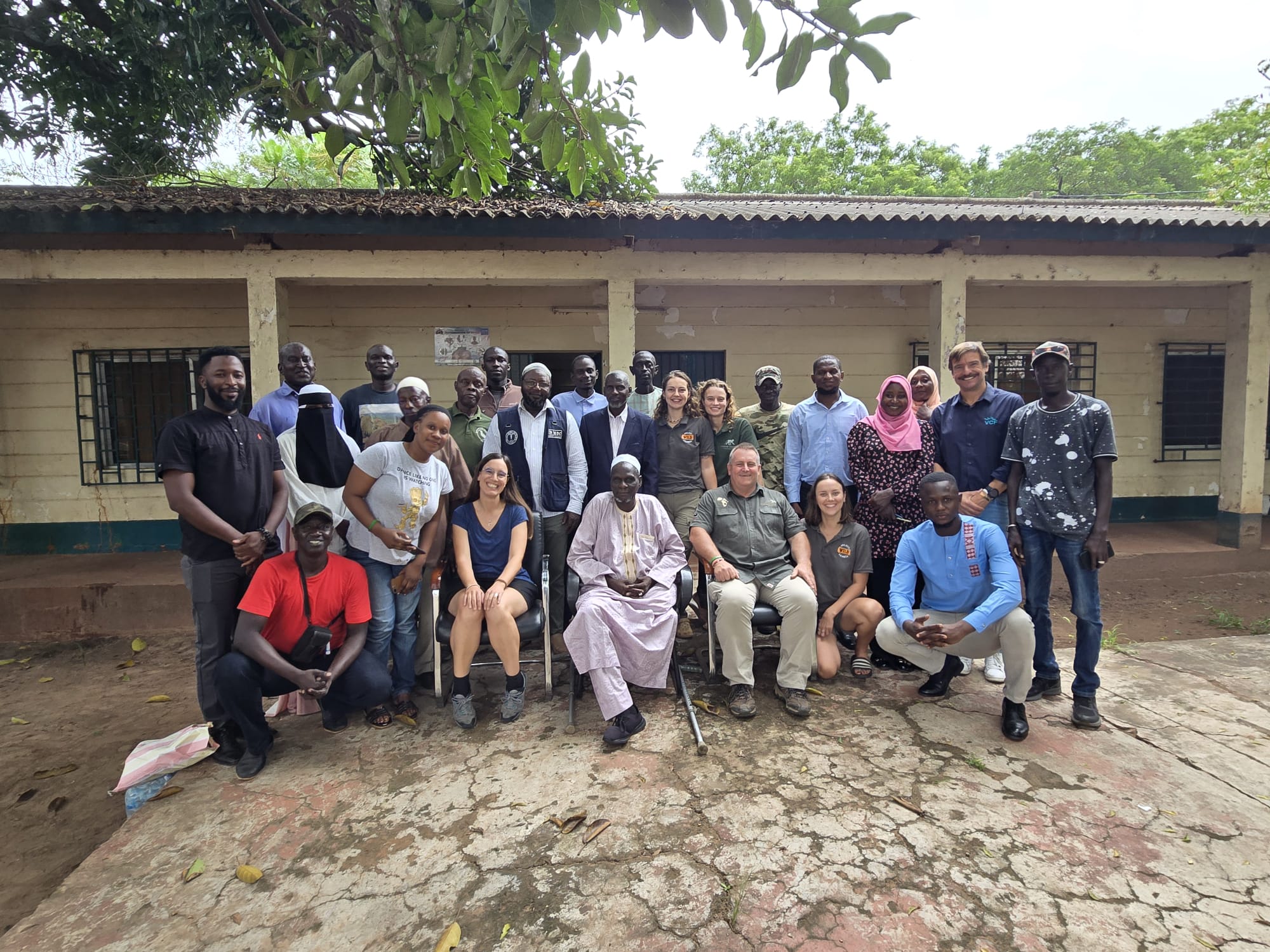In July 2025, The Gambia became the centre of a conservation crisis as three devastating incidents claimed the lives of dozens of critically endangered Hooded Vultures (Necrosyrtes monachus). The Gambia is one of the last hotspots for this species, and these tragic events highlight the threats the species still faces at global level.
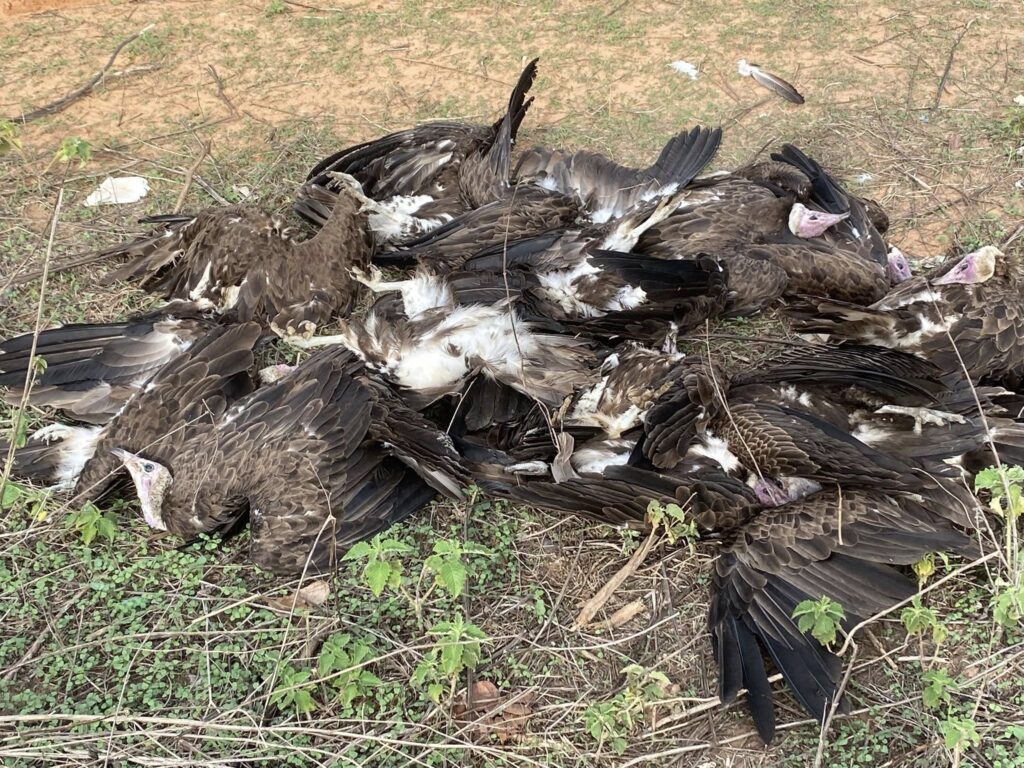
In the month of July, three separate mass mortality events involving Hooded Vultures were indentified in the country. In all three cases, the local authorities and the West African Bird Study Association (WABSa) were dispatched to investigate the scene.
Early July, a poisoning incident
On July 3, in the town of Gunjur, a resident found 23 Hooded Vultures dead on a hill and immediately alerted the West African Bird Study Association. Once on site, the researchers team was greeted by a grim scene: out of 24 birds lying on the ground, only one was still alive but in terrible condition.
The samples collected on site unfortunately revealed the use of poison. It is not clear if the birds were the intended target of this illegal and cruel action, or if they ingested something toxic present in the environment. Unfortunately, vultures are often target of illegal practices linked to supertition and religious rituals. The case is still under investigation.
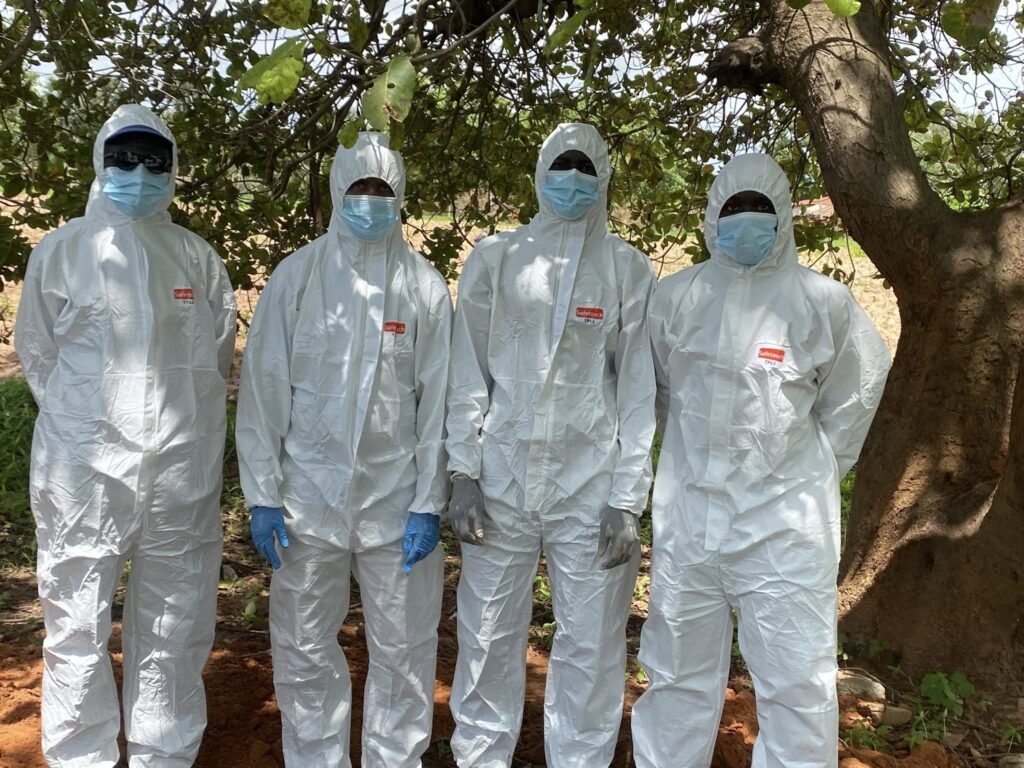
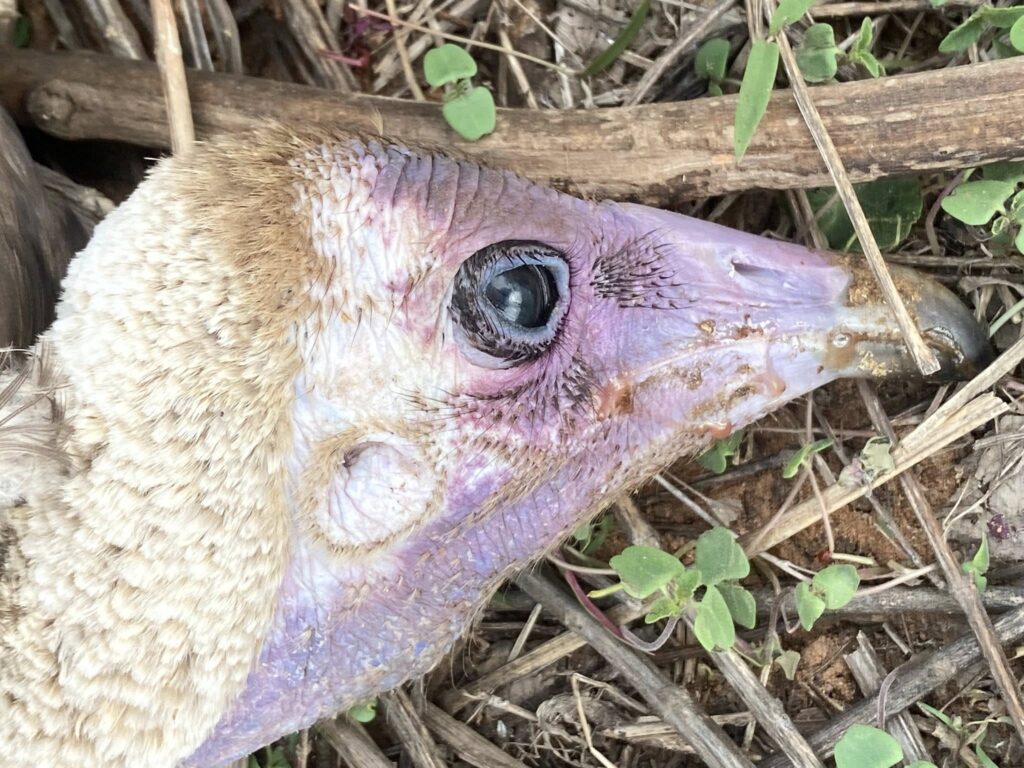
Two more mass mortality cases, both with a probable superstition background
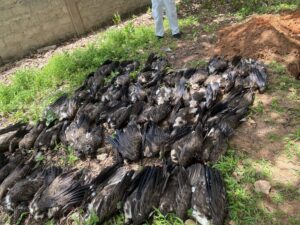
A dozen Hooded Vultures were found decapitated in Bonto Kuta village on July 14. Two weeks later, 44 Hooded Vultures faced the same fate in Burufut, marking the third deadly incident in the region in the same month.
The repeated actions are likely linked to rituals tied to local superstitions. These incidents are part of a worrying broader pattern of vulture declines in West Africa driven by poisoning (both targeted and accidental), habitat loss, and traditional trade in vulture parts. The local and international communities are calling for official investigation by wildlife and security authorities.
Superstition and belief-based practices impact on vultures in West and Central Africa
Despite national law protecting Hooded Vultures, this species is the most targeted species in West Africa for illegal killing, for vulture parts. The use of vulture parts (the heads or the feet) is alleged to bring power and good luck and protect against witchcraft.
The study “Conservation implications of the illegal trade in Hooded Vultures (Necrosyrtes monachus) for belief-based use in Benin, West Africa”, recently published, highlighted the negative impact of these belief-based practices on Critically Endangered wildlife like Hooded Vultures. The study additionally underlines that new technologies have enabled a significant international trade of this species, despite the ongoing conservation efforts and government policies. Low education and weak policy enforcement contribute to the trade, further threatening the survival of this species.
The ripple effect on Hooded Vultures and a wider conservation emergency
Hooded Vulture are classified as Critically Endangered by the International Union for the Conservation of Nature‘s Red List of Threatened Species. Their population suffered a steep decline of over 65% in less than three generations, with their global population estimated at only 130,000 individuals approximately. Sadly, the Gambian incidents are not isolated. Only in May this year, we reported already two more massive poisoning incidents in South Africa.
Obligate scavengers like vultures provide irreplaceable ecosystem services, such as the control of pathogens and diseases spread by rotting carcasses. Hooded vultures in particular, often living close by or in local communities, provide an essential sanitation role, picking up organic rests among the village garbage heaps. This also turns them very vulnerable to persecution, as they live in close contact with humans. The decimation of vulture populations risks a spiralling effect on local ecosystems, human and wildlife health.
The latest mass killing events have sounded an urgent alarm. Conservation efforts and legislation must be supported by a cultural shift. The indispensable role vultures play, both ecologically and culturally, should be recognised and cherished. The fight to save Africa’s vultures is not merely about avoiding extinction—it’s about preserving both cultural traditions and nature. There is no time to waste. Every vulture lost brings us closer to consequences we can neither afford nor imagine.
